Italian Prime Minister Mario Draghi's political crisis
There's trouble in Rome

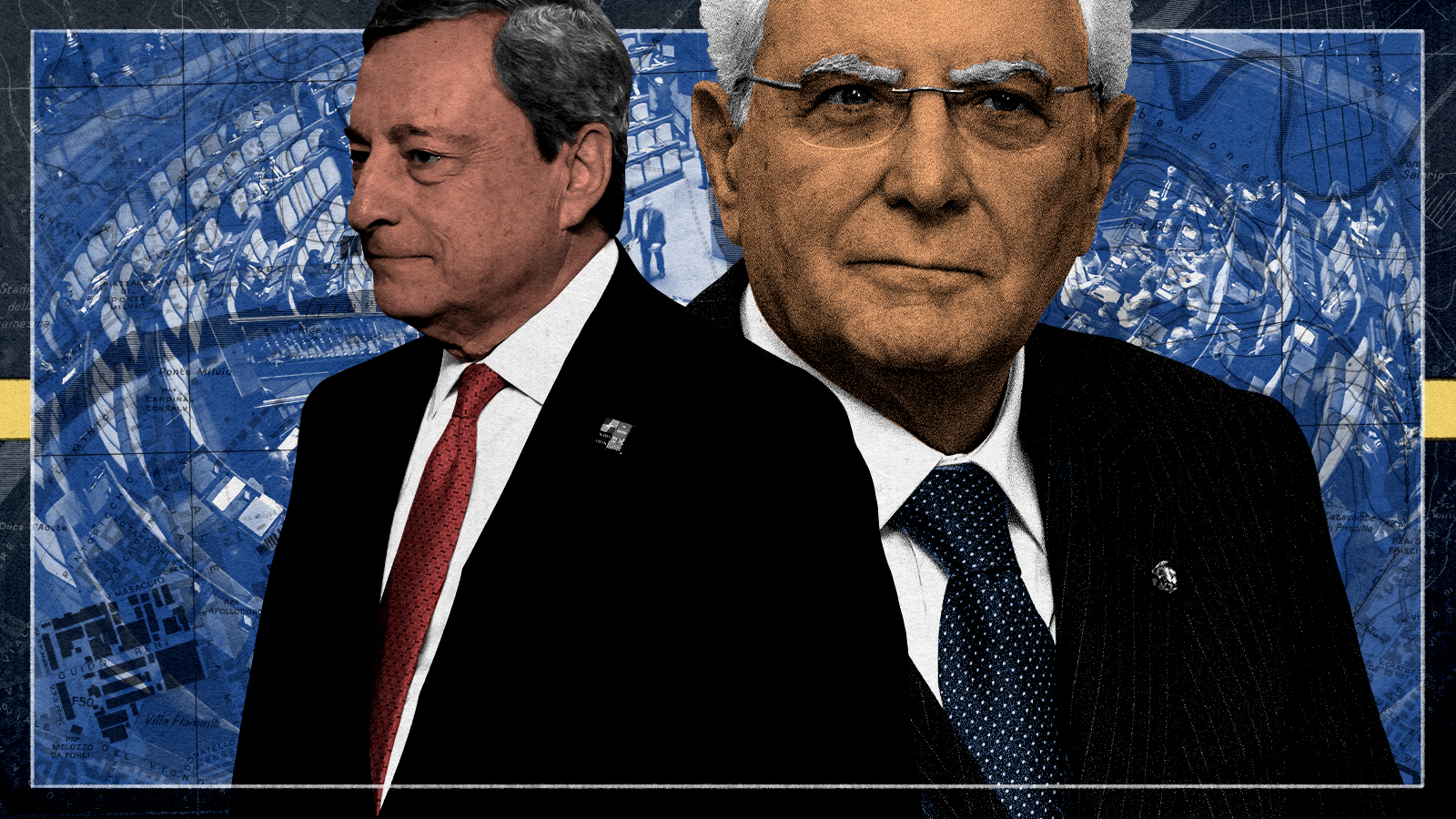
A free daily email with the biggest news stories of the day – and the best features from TheWeek.com
You are now subscribed
Your newsletter sign-up was successful
Italian Prime Minister Mario Draghi has led a unity government since February 2021, but after members of the Five Star Movement refused to participate in a confidence vote on Thursday, he announced his resignation. This was rejected by Italian President Sergio Mattarella, who asked Draghi to address Parliament this week and see if he can get a majority that will support him. Here's everything you need to know:
Who is Italian Prime Minister Mario Draghi?
The 74-year-old is the former president of the European Central Bank, serving from 2011 to 2019. It's been said that Draghi saved the euro, after declaring early on in his tenure that the European Central Bank would do "whatever it takes" to protect it, and he's earned the nickname "Super Mario." Before that, Draghi worked at the World Bank and Goldman Sachs and was governor of Italy's central bank. In the 1970s, he became the first Italian to receive a doctorate from the Massachusetts Institute of Technology.
In February 2021, after Giuseppe Conte of the Five Star Movement resigned as prime minister, Matarella asked Draghi to form a government of national unity. In less than two weeks, he successfully had a coalition and was named prime minister. The New York Times says Draghi has brought moderate growth to Italy, and in the last 17 months made reforms to the country's justice system and tax code. A strong proponent of the European Union, he also found sources of energy away from Russia. "Along the way," the Times writes, "he made populism unfashionable and competence admirable, and he repositioned Italy as a reliable force for democratic values within Europe."
The Week
Escape your echo chamber. Get the facts behind the news, plus analysis from multiple perspectives.

Sign up for The Week's Free Newsletters
From our morning news briefing to a weekly Good News Newsletter, get the best of The Week delivered directly to your inbox.
From our morning news briefing to a weekly Good News Newsletter, get the best of The Week delivered directly to your inbox.
What parties are in Italy's coalition government?
There are parties from the right, left, and center, and the populist Five Star Movement at one time was the largest in the coalition; over the last year, support for the party has been slipping, and many members have defected, BBC News reports.
Why did members of the Five Star Movement decide to boycott the confidence vote?
The confidence vote was linked to a €26 billion bill that would help people and businesses cover their high energy bills. This measure also included a provision allowing the building of a garbage incinerator in Rome, which The Guardian says the Five Star Movement has long opposed. Conte is now the leader of the Five Star Movement, and Draghi spent several days trying to work out a compromise to get him to support the bill. Draghi ordered a confidence vote on Thursday "in an effort to call ... Conte's bluff," the Times reports, but he went through with the boycott. The government survived the confidence vote, 172 to 39.
Luigi di Maio, a former leader of the Five Star Movement who quit last month and formed his own party, Together for the Future, is accusing the Five Star Movement of trying to bring down Draghi in order to build itself back up and regain supporters. "This crisis was planned in advance," he said in a radio interview on Friday.
Why did Draghi say he would resign?
Draghi previously said he would not lead a government without the Five Star Movement. When announcing his resignation on Thursday, Draghi said he was doing so because "the majority of national unity, which supported this government since its inception, no longer exists." By refusing to accept Draghi's resignation and asking him to speak to Parliament, Mattarella has essentially put the political crisis on pause.
A free daily email with the biggest news stories of the day – and the best features from TheWeek.com
What happens next?
Draghi is expected to address Parliament on Wednesday, and until then, it's a waiting game to see what he does and says. Elections are already set for early 2023, but if he resigns, they will be moved up — and it's expected that center-right and far-right parties will fare well, The Washington Post reports.
A new government wouldn't just affect Italy. Draghi opposed the Russian invasion of Ukraine and pushed for sanctions against Moscow, while also supporting Ukraine eventually joining the European Union. Di Maio said the news of Draghi's attempted resignation was received well in Russia, where "they were making a toast." He added, "Mario Draghi's head was served to [Russian President Vladimir] Putin on a silver plate. Autocracies are toasting and democracies are weaker."
Catherine Garcia has worked as a senior writer at The Week since 2014. Her writing and reporting have appeared in Entertainment Weekly, The New York Times, Wirecutter, NBC News and "The Book of Jezebel," among others. She's a graduate of the University of Redlands and the Columbia University Graduate School of Journalism.
-
 The ‘ravenous’ demand for Cornish minerals
The ‘ravenous’ demand for Cornish mineralsUnder the Radar Growing need for critical minerals to power tech has intensified ‘appetite’ for lithium, which could be a ‘huge boon’ for local economy
-
 Why are election experts taking Trump’s midterm threats seriously?
Why are election experts taking Trump’s midterm threats seriously?IN THE SPOTLIGHT As the president muses about polling place deployments and a centralized electoral system aimed at one-party control, lawmakers are taking this administration at its word
-
 ‘Restaurateurs have become millionaires’
‘Restaurateurs have become millionaires’Instant Opinion Opinion, comment and editorials of the day
-
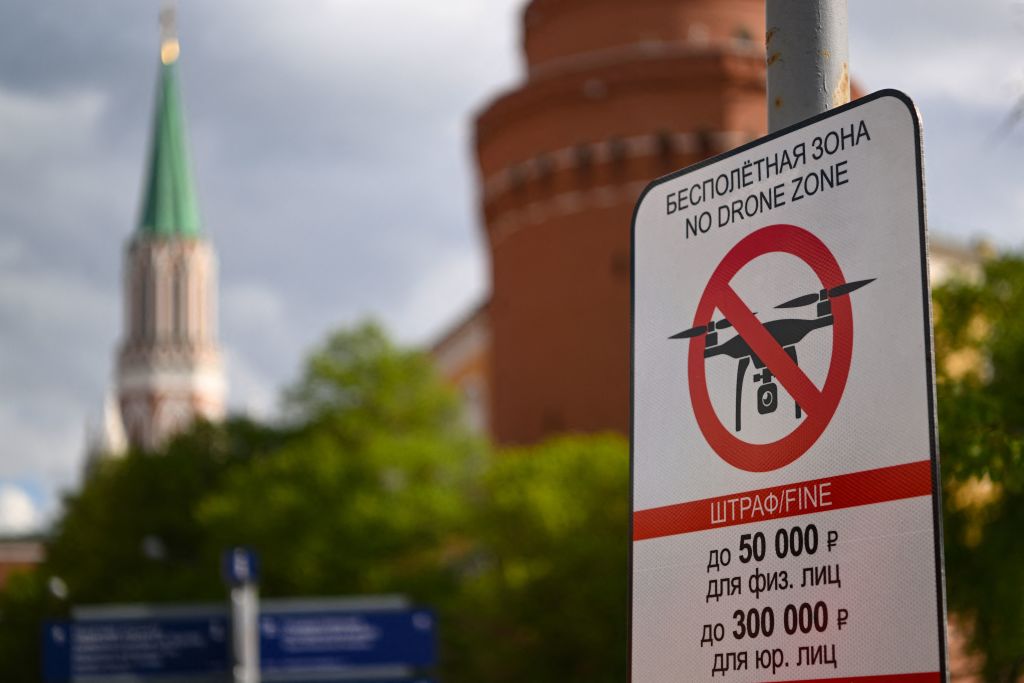 Did Ukraine orchestrate the Kremlin drone strike?
Did Ukraine orchestrate the Kremlin drone strike?Speed Read If Kyiv isn't behind the humiliating attack, who is?
-
 Stealing Ukraine's children
Stealing Ukraine's childrenSpeed Read Vladimir Putin has been charged with war crimes for abducting thousands of Ukrainian children. Why is he doing this?
-
 Russia's shadow army
Russia's shadow armySpeed Read The Wagner Group, accused of numerous war crimes, has sent tens of thousands of mercenaries to fight in Ukraine
-
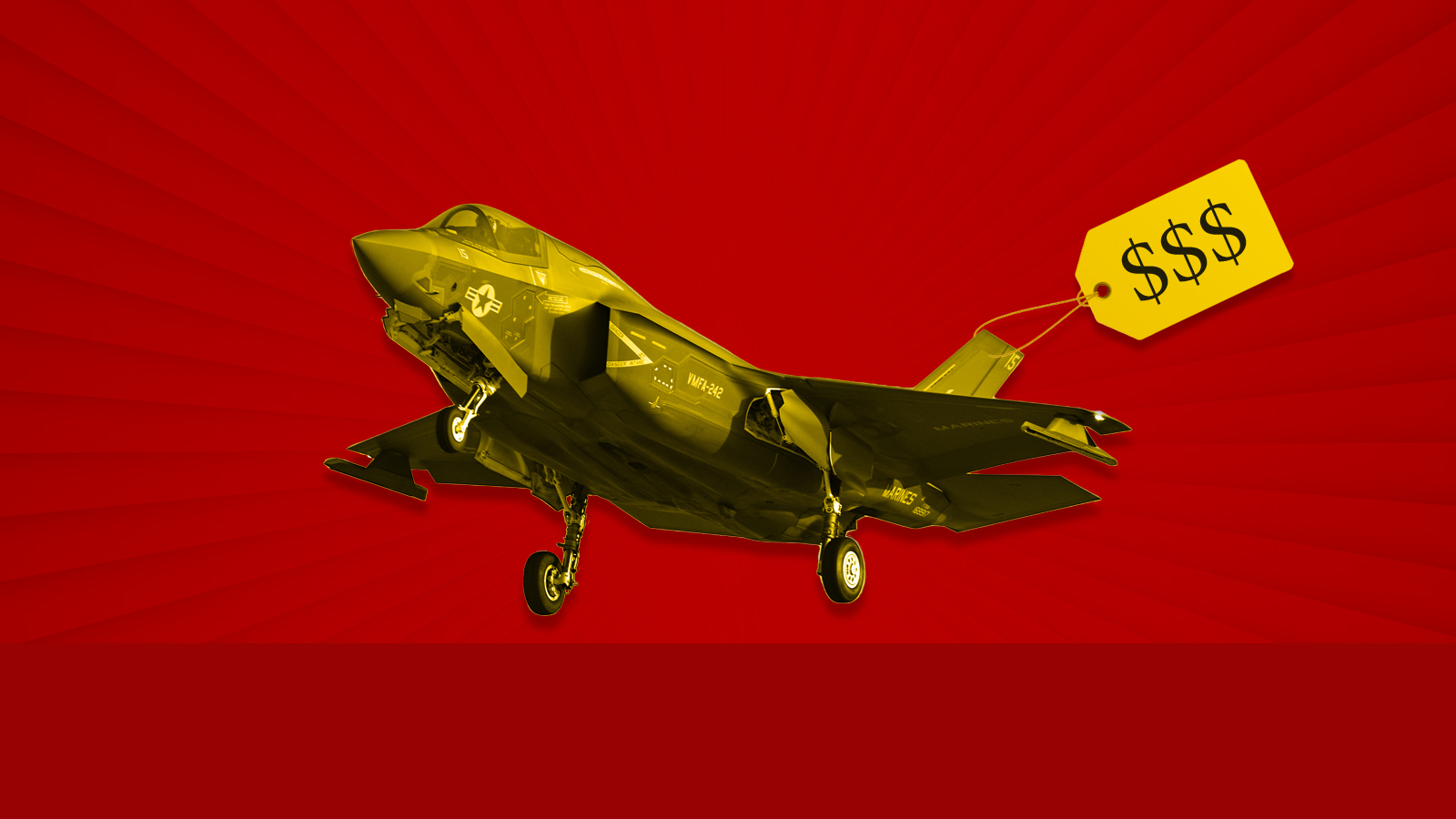 The F-35 fighter jet's troubled history
The F-35 fighter jet's troubled historySpeed Read Why 'the most expensive weapon in human history' still can't get off the ground
-
 The U.S. gave Ukraine tanks. Are jets next?
The U.S. gave Ukraine tanks. Are jets next?Speed Read How to balance helping Ukraine without triggering a wider war with Russia
-
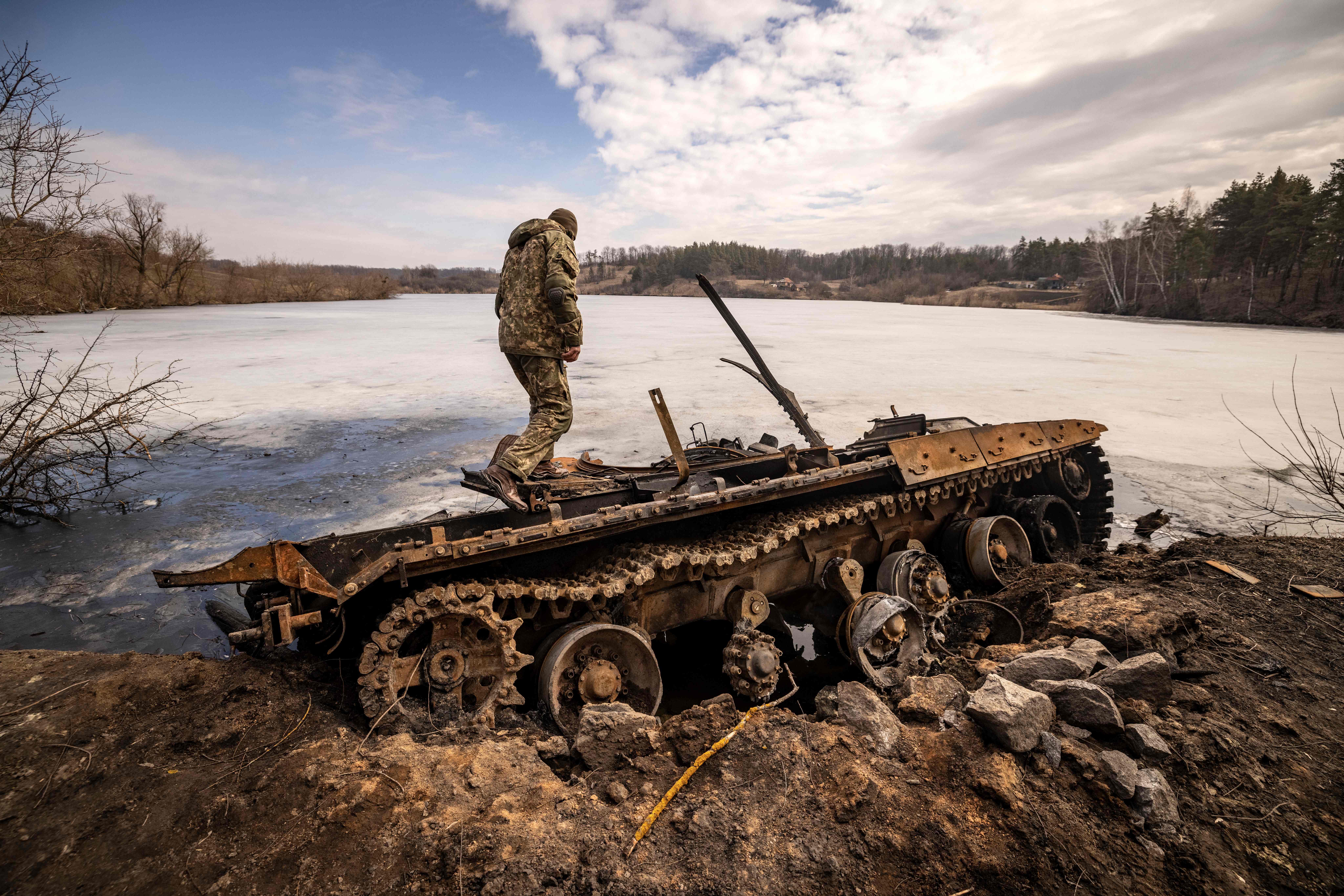 Can climate change lose Russia the war in Ukraine?
Can climate change lose Russia the war in Ukraine?Speed Read Russia's 'trump card' surprisingly took a major hit this winter
-
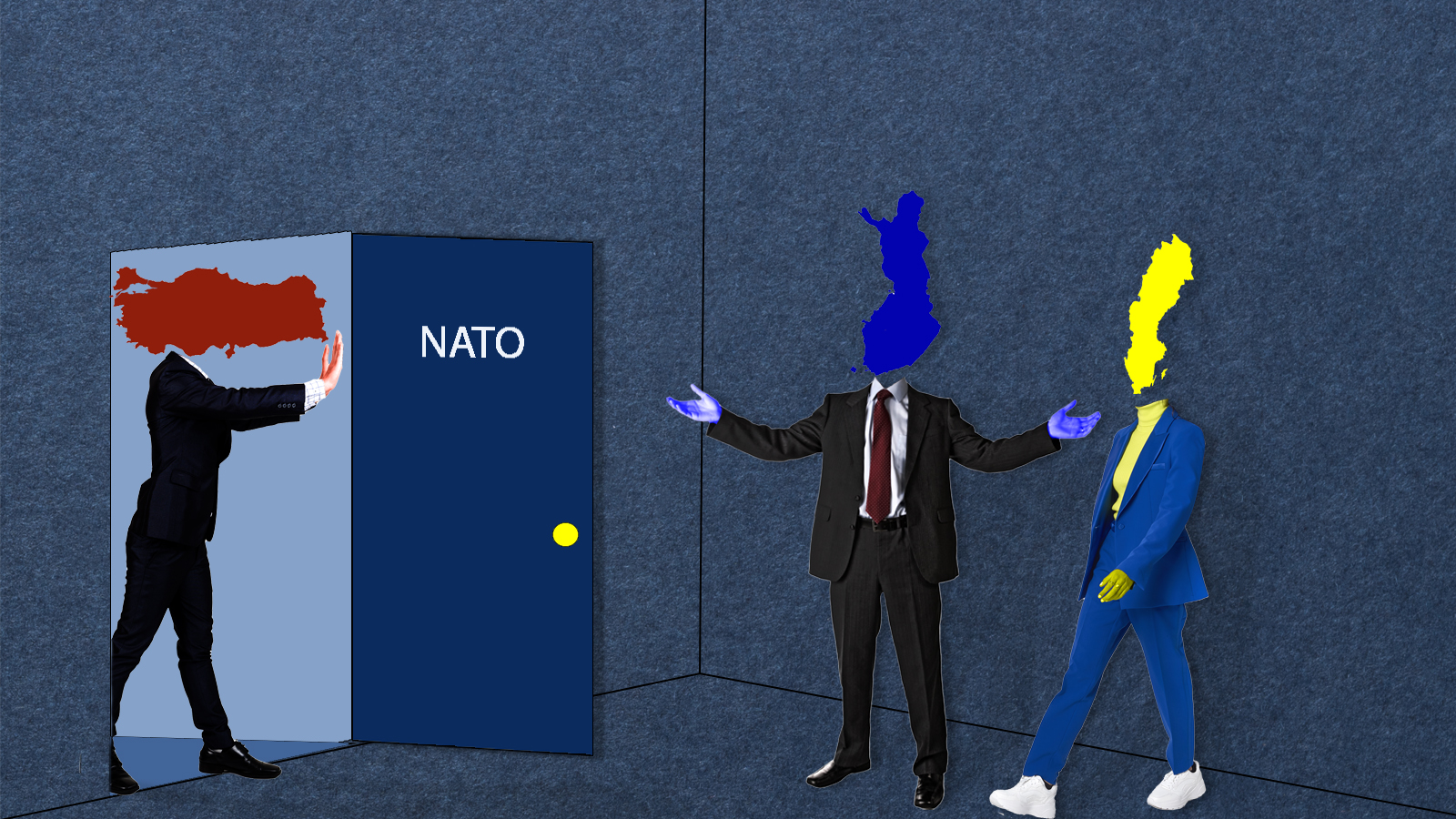 Why Turkey is blocking NATO's expansion
Why Turkey is blocking NATO's expansionSpeed Read Sweden and Finland have applied to join the alliance. Not so fast.
-
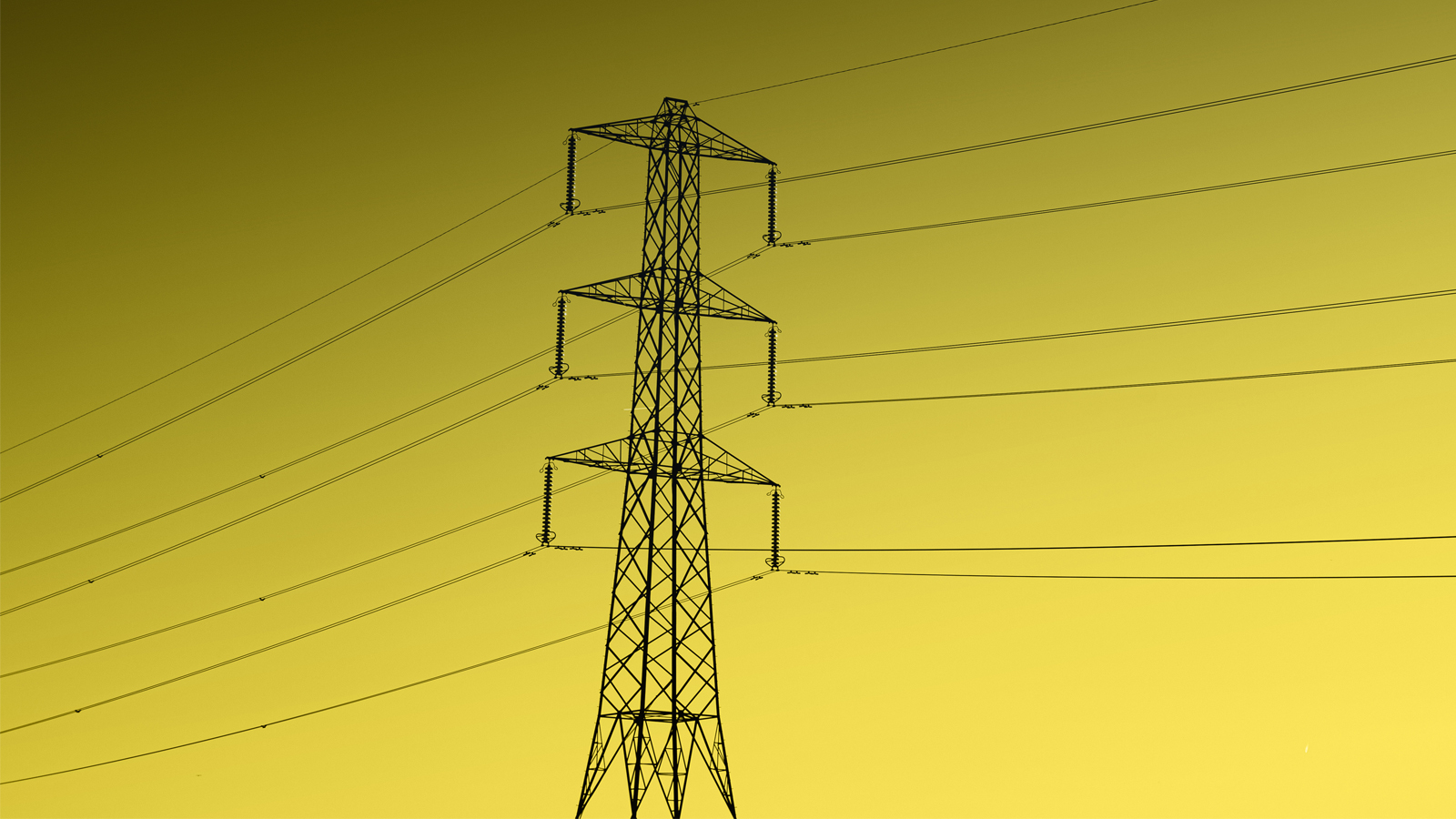 Why America's electrical grid is vulnerable to attack
Why America's electrical grid is vulnerable to attackSpeed Read Assaults on the grid are increasingly frequent
